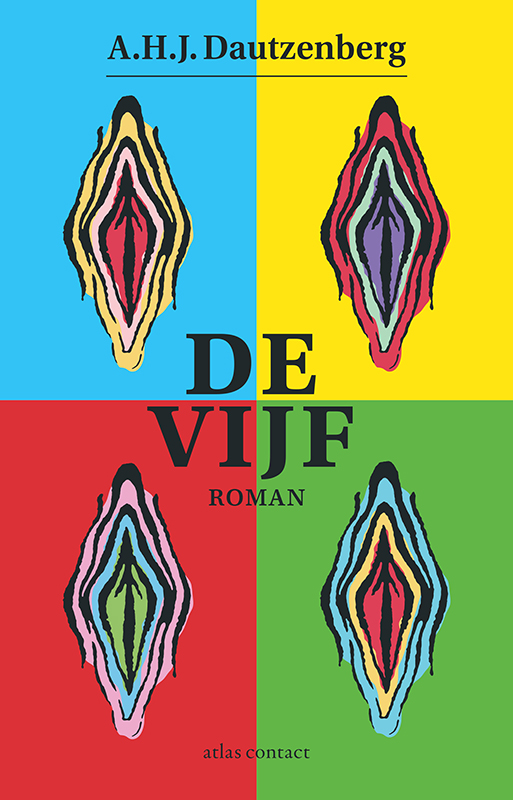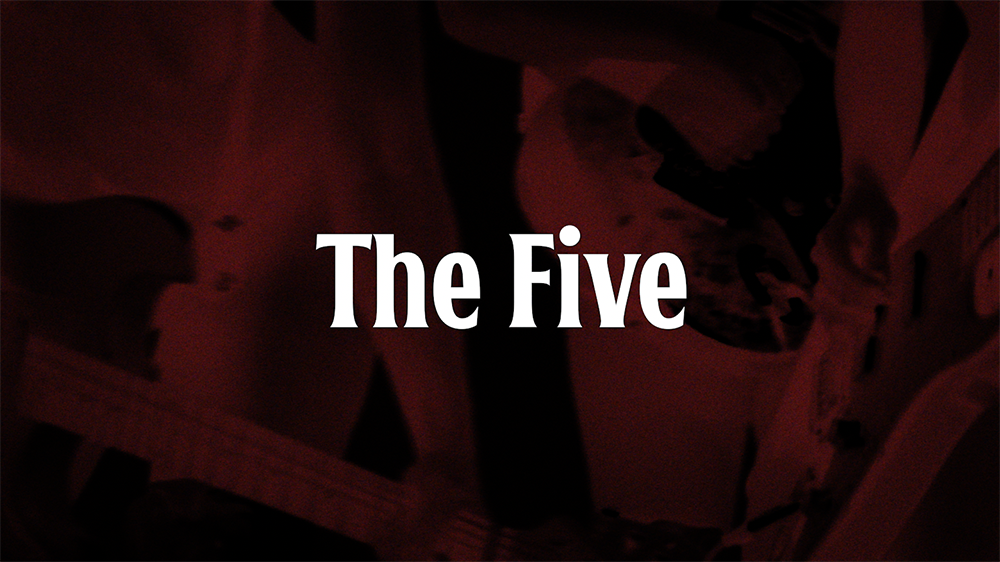The Five
- 2025
- A music and visual association to the book 'De Vijf' by A.H.J. Dautzenberg
- Electric guitar quartet & drums, performed by Zwerm & Karen Willems
- Dansfilm i.s.m. Tegest Pecht-Guido
- Made possible by: Fonds Podiumkunsten, Grensverleggers, regeling ter ondersteuning van culturele samenwerkingen tussen partijen in Vlaanderen, de Provincie Noord-Brabant, de Provincie Limburg en de Provincie Zeeland
A music and visual association to a striking novel by A.H.J. Dautzenberg
Merijn Bisschops formed the complex structure, suspense, characters and style choices of the Libertine novel De Vijf, by A.H.J. Dautzenberg, to become a stand-alone concert experience with dance film. His reaction to the book contributes to the inevitable discussion about what can or cannot be said, written or shown at this time. The Five, a production of Institute of Associations (IoA), is performed by Flemish guitar quartet Zwerm and drummer Karen Willems. The choreography was made by Tegest Pecht-Guido.
An audiovisual trip
Merijn Bisschops shaped the complex structure, suspense, characters and style choices of the book De Vijf into a stand-alone concert experience with dance film. Bisschops: 'At first hearing, The Five is a brutal piece of music with influences of drone doom, metal and indie rock, but just as the book has several layers to peel off, under that rough exterior is my characteristic rich emotional inner world, instrumental refinement and challenging microtonality.
Where the music can be seen as an associative concept album with the book, the dance film is an artistic reaction to the book, in which the female and male gaze in particular are central. The film is the result of an intensive collaboration between me and choreographer Tegest Pecht-Guido and performers Savannah du Toit, Rose Langley, Marisol Costa and Rusty Warren. By taking the book and the theme of male-female relationships as a starting point, the making process was intense, I think we see that reflected in the images. The film shows a cynical worldview in which women and men are inextricably connected, yet cannot connect.'
De Vijf
With his novel De Vijf, A.H.J. Dautzenberg explores freedom of expression in the present time, and in particular the role that art plays in that discourse. Four teenage girls share a devilish drive towards sex and violence. They live themselves completely in an underground work of art and pulverize not only the limits of prevailing morality, but also those of language. Dautzenberg: 'The novel forms in a sense a pharmakon, poison and medicine at the same time. We tend to show only the sublime of man in art, and certainly in literature. I mainly mirror the abject with my book; we must be prepared to see the potential executioner in ourselves, the beast. The impulse of the perverse, to quote Edgar Allan Poe. Sex and violence are primordial drifts that need no motive to manifest themselves.'











